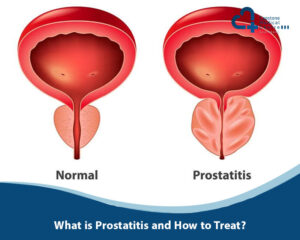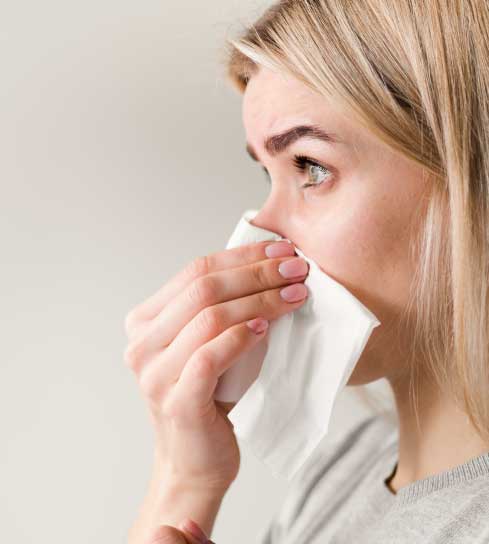
What is Prostatitis and How to Treat?
Prostatitis, a condition that has significant implications for men’s health,


MD, FRACGP, FACAM
Advance Diploma in General Dermatology
Diploma of Cosmetic Medicine

Post-nasal drip, characterized by the movement of mucus down the back of the throat and often leading to coughing, can have various causes. It’s normal to swallow some nasal and sinus mucus unconsciously, but when mucus becomes thicker or more abundant, it can result in post-nasal drip.
One possible diagnosis associated with post-nasal drip and related throat sensations is Upper Airway Cough Syndrome (formerly known as postnasal drip syndrome). This condition is typically linked to issues with the nose and sinuses.
Rhinitis: Inflammation of the nasal lining, often caused by allergies (allergic rhinitis) but also linked to factors like colds, hormonal changes, and certain medications.
Sinusitis: Acute or chronic inflammation of the sinuses, often resulting in post-nasal drip, nasal symptoms, facial discomfort, coughing, and smell loss.
Upper Airway Cough Syndrome: In some cases, heightened throat sensitivity, rather than increased mucus, may lead to the perception of excessive throat mucus.
Environmental Factors: Changes in temperature and humidity can affect mucus consistency in the nose and throat. Cold weather may stimulate mucus production, while indoor heating can thicken it.
Allergic Rhinitis: Antihistamines, corticosteroid nasal sprays, and leukotriene receptor antagonists (e.g., montelukast) may be prescribed.
Rhinosinusitis: Treatment varies depending on whether it’s acute (often viral, treated symptomatically) or chronic (may require corticosteroids, antibiotics, or surgical removal of nasal polyps).
Upper Airway Cough Syndrome: First-generation antihistamines and decongestants, taken orally, are used. Decongestants should be used briefly.
Consulting a healthcare provider is essential for a proper diagnosis and personalized treatment plan. If symptoms persist or are bothersome, you may be referred to an ear, nose, and throat specialist who may perform nasal endoscopy to assess the condition further. Finding the cause of your symptoms and addressing it can significantly improve your comfort.

Prostatitis, a condition that has significant implications for men’s health,

Back to all The Best Foods to Eat While Working

Back to all Healthy Relationships What is a healthy relationship?

Back to all How to shop for healthy food on

Back to all Travel Vaccinations: What to know before you
Monday – Wednesday
Thursday – Friday
Saturday
Sunday
Public holidays
9 am to 5:30 pm
8:30 am to 6:30 pm
10.00 am to 3.00 pm
closed
closed
© 2020 All rights reserved.
